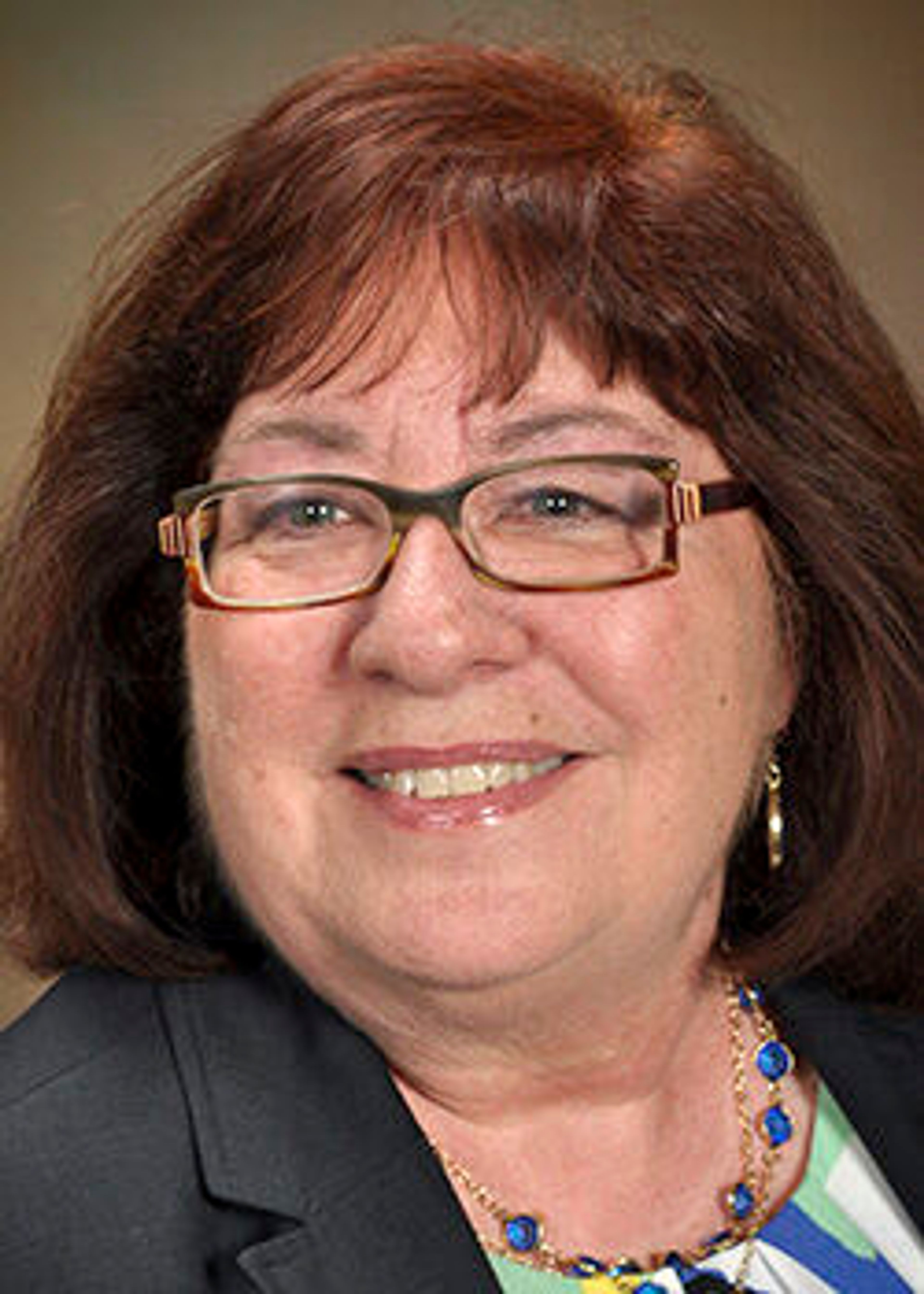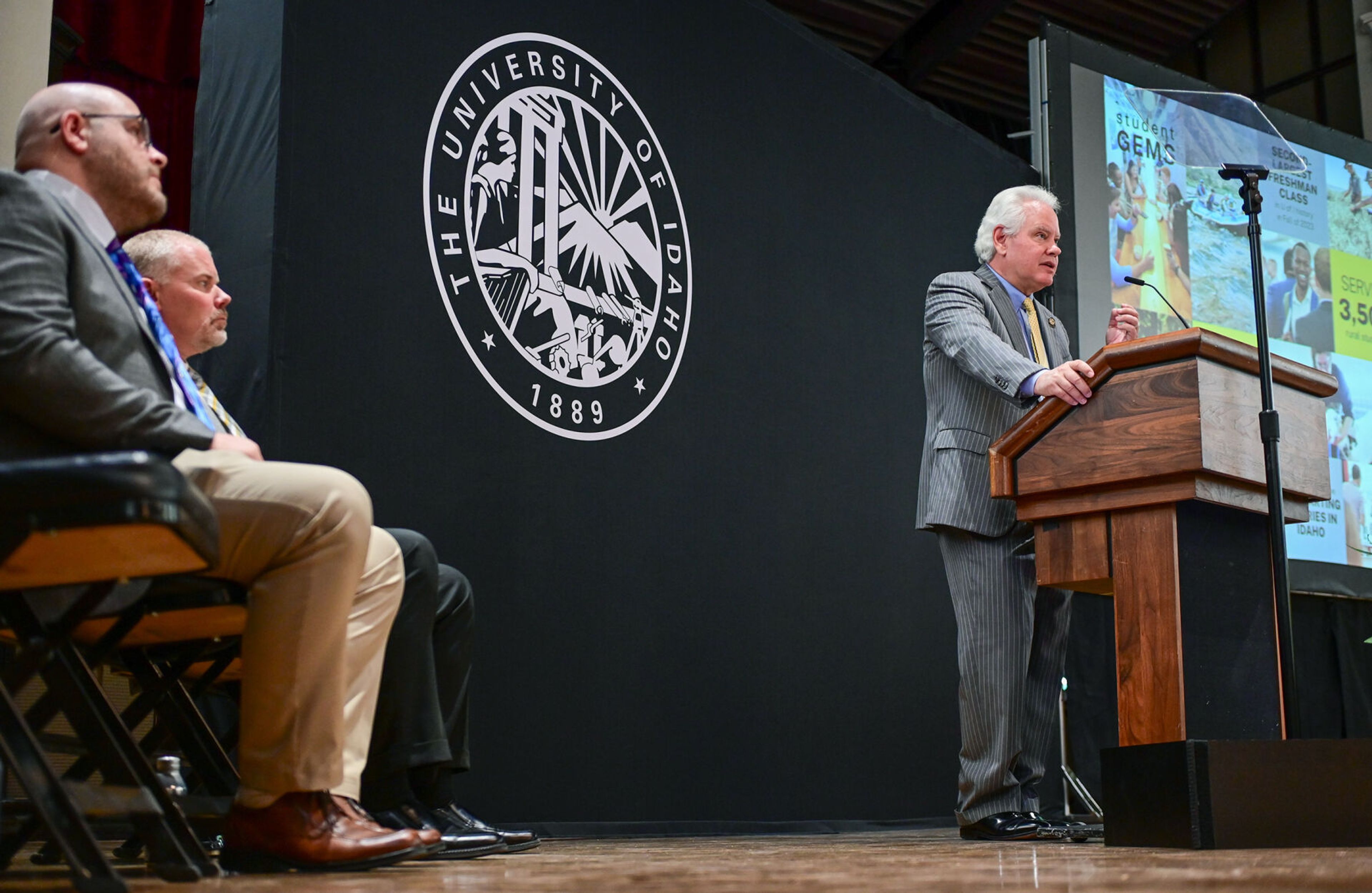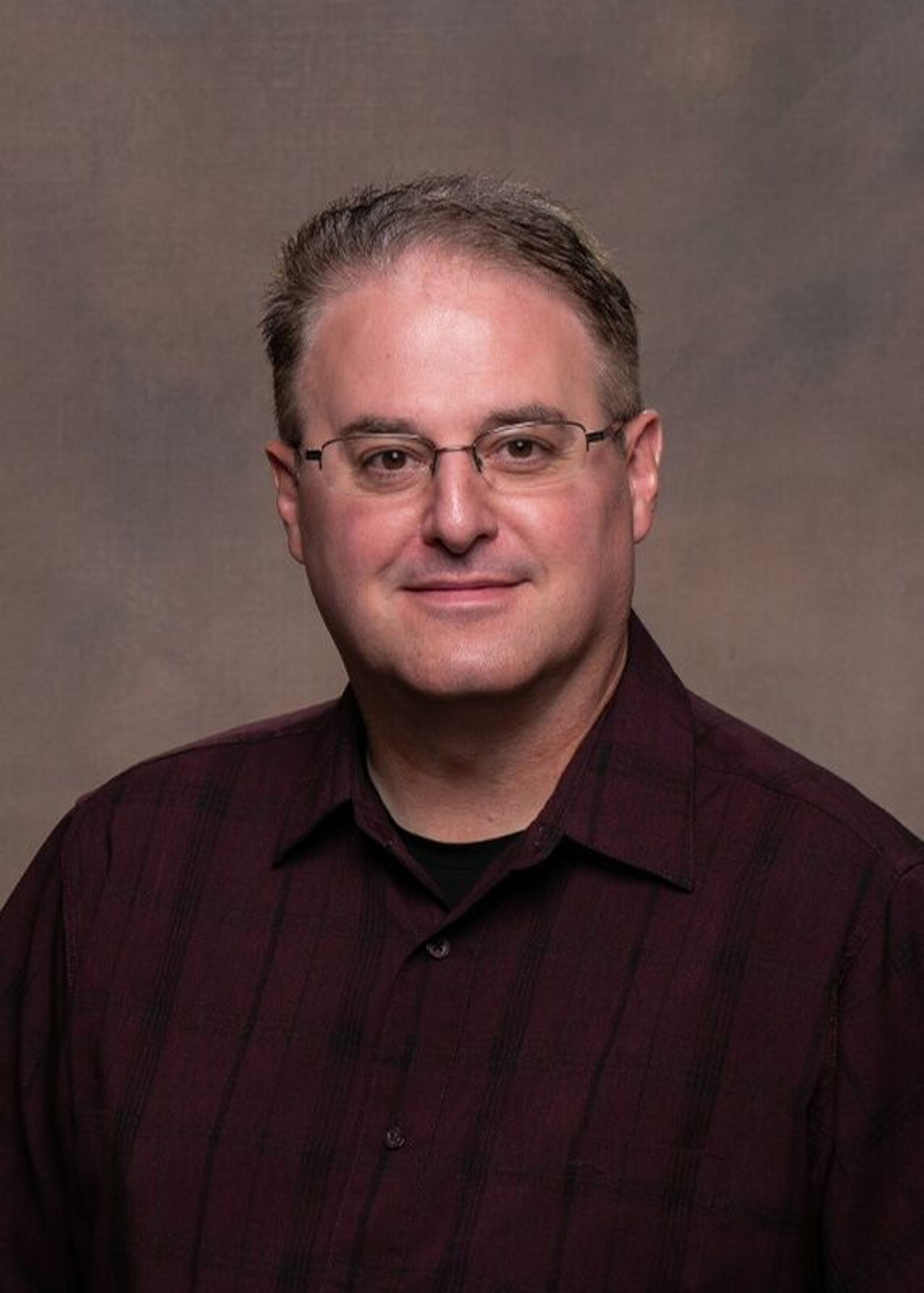Schulz focuses on WSU's achievements
But audience members question president on budget cuts during his State of the University address
Washington State University President Kirk Schulz shared some of the university's recent highlights (the Cosmic Crisp Apple), its weak points (handling of American Samoan athletes) and its goals for the future (Drive to 25) during his annual State of the University address Tuesday afternoon in Bryan Hall.
Schulz, who last October announced sweeping, department-wide budget cuts would be implemented to bring the university out of a $30 million deficit, said he did not want to focus on financial issues, just the university's achievements in the past year.
Those achievements included a record enrollment of 30,614 students across all of WSU's campuses, with particularly fast growth at WSU Vancouver and the university's online global campus. Total enrollment is up 400 students from a year ago and is expected to increase to more than 31,000 students this fall, Schulz said.
Other highlights included the opening of the WSU Everett campus building, the new Elson S. Floyd Cultural Center, the upcoming Jordan Schnitzer Museum of Art and the university's new Elson S. Floyd College of Medicine.
The president said the university also had one of its most successful fall sports seasons this past fall and hired a new athletics director, Pat Chun, to join the ranks.
Schulz boasted of WSU's economic effect on the state, including its boost to the wine industry and the university's new Cosmic Crisp Apple, a product of WSU's tree fruit breeding program, which is expected to hit store shelves in 2019. Twelve million Cosmic Apple trees are expected to be planted, in what Schulz called the largest introduction of an apple, ever.
But some members of the audience would not let Schulz leave the stage without acknowledging his announced budget cuts and answering a few "tough questions."
Amy Mazur, a professor in WSU's School of Politics, Philosophy, and Public Affairs, asked Schulz why he did not include the accomplishments of any of the school's social science researchers in his presentation.
"What I saw today was there was absolute pretty much nothing from social sciences that was actually accentuated in your program," Mazur said, "and I find this very much a shame because I know in our school we are doing very exciting things."
She said the school currently has nine full-time faculty members, down from 17, and is staffing students from its doctorate program. Mazur said it is the feeling among many of her colleagues that WSU is "robbing Peter to pay Paul."
"If we're trying to do the Drive to 25 and we don't even have a cohort of nine, you know, we used to have 17, I don't know how we're supposed to do this," Mazur said. "I really don't."
Schulz apologized for the lack of social sciences content in the presentation and said he would look to make changes to that next year. Though he praised Mazur for her articulation of the budgeting problem in her school, he said all departments are facing similar issues, adding he did not create the $30 million "budget hole" and it "sucks" to have to fix it.
Asked whether he would consider slashing administrator's salaries in response to a petition calling on him to do so and signed by more than 1,000 WSU professors, alumni and students last year, Schulz said the action could cause new employees entering WSU, which is already facing budget cuts, to wonder why they moved to the university in the first place.
"I appreciate the fact somebody brought a creative idea forward," Schulz said. "We always want ideas, but that just didn't seem the right thing to do at this particular time."
Answering a question from former Associated Students of WSU President Jordan Frost about what he could have done better, Schulz said the university's response to a series of arrests in summer of 2016 involving four American Samoan football players, for which the university received sharp criticism, is something he would have changed.
"If I had to pick one thing, that's one thing that I wish I had handled differently or better," Schulz said.
In his presentation, Schulz said the university is working to become more welcoming and inclusive, saying WSU started off the year looking at five requests by student protesters and demonstrators to make the campus more welcoming.
"Sometimes the road is going to be a little rocky, but we're going to keep at it," Schulz said.
Taylor Nadauld can be reached at (208) 883-4630, by email to tnadauld@dnews.com and on Twitter @tnadauldarg.







